Are you looking for the best microphone to record your podcast? Struggling to figure out which podcasting microphone would be ideal for you?
You’re in the right place, then. Below, we take a closer look at the eight absolutely best microphones for podcasting.
Castos is a participant in the Amazon Services LLC Associates Program. We may earn commissions from your purchases on Amazon.com, though at no cost to you.
Why Podcasting Microphone, Though?
Well, while it’s possible to record a podcast through your smartphone’s built-in microphone, we certainly don’t recommend it.
If you want to produce quality audio, you need a professional microphone. That’s why we’ve put together this list of the best podcast microphones.
This is not an exhaustive list, of course. There are plenty of other great podcast microphones on the market. Over time, you will want to experiment with different microphones to find the one that fits your preferences and your podcast workflow. But these options are a great place to start.
Tip
Once you’ve chosen a microphone, be sure to check out our guide on podcast microphone techniques. These tips will greatly improve your podcast audio and minimize your editing.
Action
Read to start your own podcast? Learn the nitty-gritty details of starting your own show in our comprehensive guide. Learn how to start a podcast.
The 8 Best Podcast Microphones
The following are our recommendations for the best podcast microphones. We’ve chosen a range of microphones for our list. Some are more expensive than others. If you’re at the beginning of your podcasting journey, it’s perfectly fine to purchase an inexpensive model until you’re ready to upgrade.
1. Audio-Technica ATR2100 USB/XLR Microphone
This is one of our favorite entry-level microphones. It performs exceptionally well for its price point and offers both USB and XLR connections so you can plug it directly into your computer or into a mixer. The cardioid polar pattern doesn’t pick up any noise from the sides or rear, making background noise very minimal. You can position it near fans or other devices without capturing their sound.
Currently, this podcast mic has more than 3,000 reviews on Amazon. It’s loved by more than just podcasters, too. It’s great for business calls, conferences, and live streams. The affordable price point means you can spend that money on other gear, like a pop filter and boom mount. No list of the best podcast microphones is complete without the ATR2100.
We also like that this mic is small enough for travel. You can drop it into your bag and take it on the road to attend an event or perform an interview.
2. Samson Q2 USB/XLR Dynamic Microphone
The Samson Q2U is another quality podcast mic for entry level podcasters. This mic offers USB and XLR connections, so it’s versatile if you ever decide to “level up” to using a mixer. It’s inexpensive, but a significant improvement over a cheap headset or your computer’s built-in mic.
Like the ATR2100, this mic offers a cardioid pickup pattern that captures sound from in front of the microphone and less from the side and rear, minimizing ambient sounds, feedback, and background noises. Additionally, there’s a 3.5 mm headphone jack so you can hear yourself without any delay or echo.
3. Rode PodMic Cardioid Dynamic Podcasting Microphone
The Rode PodMic is a small, cardioid, condenser podcasting microphone that offers fantastic sound. It’s known for requiring minimal editing to clear up your audio. It’s inexpensive and comes with an internal pop filter to blunt your plosives.
Keep in mind that the PodMic is an XLR microphone, so you’ll need to plug it into a mixer before storing the audio on your computer, so it’s not suited for new podcasters. But the mic is cheap enough that you’ll have some extra cash to buy other equipment.
If we have one complaint about the PodMic, it’s that the XLR connection gets in the way of the swinging bracket, but once you find a good position, it’s not an issue.
4. Shure SM7B Vocal Dynamic XLR Microphone
The Shure SM7b is a workhorse of the podcasting world. It’s loved by audiophiles in many industries. It produces a warm and smooth sound for a wide range of voices and has great response and clarity. This is an XLR mic, so you’ll need to plug it into a mixer.
The challenge of working with his microphone is that it is extremely sensitive. It picks up a lot of background noise, which makes it great for capturing the full range of your voice, but it requires a professional environment (such as a podcast studio), good discipline from your speakers, and a bit of editing. This doesn’t make it a bad mic by any means. If you can overcome this challenge, your audio will be professional.
5. Electro-Voice RE20 Microphone
The Electro-Voice RE20 is a dynamic cardioid microphone with studio condenser-like performance, making it another podcasting mic that offers incredible sound. It’s a popular microphone across the radio industry and sports announcing.
This mic offers smooth and linear characteristics and it’s especially good at bringing out low tones, so it’s perfect for men with deeper voices. It also comes with a feature called “Variable D” which lets you move around while speaking without fading in and out.
Admittedly, the price tag on this mic is a little steep for new podcasters. You may want to wait until you can monetize your podcast before investing in something like this. Nevertheless, it’s a high quality mic that belongs on our list of the best podcast microphones.
6. Samson SAGOMIC Go Mic Portable Microphone
The Samson GO is a unique entry on our list. This is a small and portable mic that you can carry anywhere. It fits neatly into any bag and affixes to any computer or laptop. It’s great if you’re a podcaster who doesn’t always record in the same location.
Even though it’s small and cheap, this is a surprisingly powerful mic. It has great reception, able to pick up a wide range of audio with decent clarity. It uses a smooth frequency response of 20Hz to 18kHz, so your audio has good depth.
7. Rode Procaster Broadcast Dynamic Vocal Microphone
While many of the mics on this list are designed for a variety of audio (including vocals and instruments), the Rode Procaster is made specifically for speech. This is a broadcast microphone that works best when used for radio, TV, and podcasting. The cardioid pattern offers 180 degrees of rejection, so you must sit directly in front of it.
This belongs on our list of the best podcast microphones because it has a switchable high-pass filter and tight polar pattern. This means that your recordings will sound focused and clear even in noisy environments. You lose a smidge of nuance here, but that’s not really an issue with vocals.
8. Rode SmartLav+ Omnidirectional Lavalier Microphone
The Rode Smartlav+ is a tie-clip mic that plugs into smartphones (any with a 3.5 mm input, that is). This is a great mic because it’s tiny so you can take it with you wherever you go. And for a little device, it sounds pretty good. If you bundle it with the SC6 adapter, you can plug in two mics into one smartphone.
This is also a great mic if you tend to interview guests who have poor microphone discipline. The mic clips to their shirt, so it will always be in the perfect range.
How to Choose a Podcast Microphone
We’ve given you our list of the best podcast microphone, but you are probably wondering, “How do I choose the right one for me?” To choose the right podcasting microphone, you should consider the following:
Connection type
The best podcast microphones connect in two ways: USB and XLR.
USB is popular because, well, it just works. Everyone has USB ports on their computers and laptops, so a USB mic is quick to plug in and use. If you’re new to podcasting, we recommend starting with a USB mic.
XLR microphones require additional hardware, such as an audio interface or mixer. Then you’ll plug this additional piece into your computer. It’s less versatile than USB, but the interface/mixer gives you extra audio routing and processing options. Ultimately, the best sound comes from XLR are connections.
Mic sensitivity
In addition to the connection type, mics come in two varieties: dynamic and condenser.
Condenser mics are very sensitive, which creates rich, natural sounds, but tend to pick up a lot of extra noise. Dynamic mics are less sensitive, so higher frequencies produce a warmer, radio-like sound.
Your recording space
The place where you will record your episodes is one of the most important variables of good sound quality. Many new podcasters make the mistake of recording in a poor environment, creating a lot of noise and reverb in their audio. The best mics will sound poor in a bad space.
If you’re forced to record in a space with a lot of hard surfaces, opt for a dynamic mic with a tight polar pattern to limit how much of the echoing sound gets picked up.
Your participants
Different microphones capture sound in different patterns. As a podcaster, you’ll want a cardioid mic. Cardioid mics record directly in front of the microphone, but not the sides. Some cardioid mics record in front and back, but again, not the sides. The purpose is to make sure the mic is only getting sound from the intended speaker.
If you typically record with multiple speakers, we strongly recommend investing in an audio interface with multiple XLR ports. Then you can plug in as many dynamic microphones as you like and record each person on their own track. This makes post-production editing a lot simpler.
The Best Podcast Microphone is the One That Works for You
This may be our list of the best podcast microphones, but there are plenty of great alternatives on the market. What’s important is that you choose the one that’s right for you and your team. If you have something unconventional that works great and produces quality audio, then you should stick with it.
What microphone do you use? Let us know and we might add it to our list of the best podcast microphones.
Podcast Microphone – FAQ
A podcast microphone is a specialized type of microphone used for recording high-quality audio specifically for podcasts. Podcasting microphones are designed to capture clear and professional-sounding audio, minimizing background noise and delivering excellent sound reproduction focusing primarily on recording voice.
There are three main types of podcasting microphones:
Dynamic Microphones: These are popular among podcasters due to their durability, versatility, and ability to reject background noise. They are suitable for recording in noisy environments and are less sensitive to room acoustics.
Condenser Microphones: Condenser mics are more sensitive and offer higher audio quality. They are ideal for recording in quiet environments with controlled acoustics. They capture more detail but can pick up the background noise.
USB Microphones: These microphones have a built-in analog-to-digital converter, allowing you to connect them directly to your computer via USB. They are user-friendly and do not require additional audio interfaces.
No, I would not recommend recording a podcast without a microphone. A microphone is essential for capturing clear and quality audio, ensuring your content is easily understandable and enjoyable for your audience. Naturally, in theory, you could record a podcast using built-in microphones in your laptop or phone, but doing so would, most likely, result in poor sound quality, background noise, and an unprofessional listening experience.
The cost of a podcasting microphone can vary widely depending on the brand, type, and quality. For example:
Budget-friendly, entry-level microphones, suitable for beginners or those with limited funds, typically cost around $50 to $100.
Mid-range microphones that offer better sound quality and additional features, a good step up for podcasters looking for improved audio performance, usually cost from $100 to $300.
However, prices of professional, top-tier microphones that deliver an exceptional sound quality start at $500.

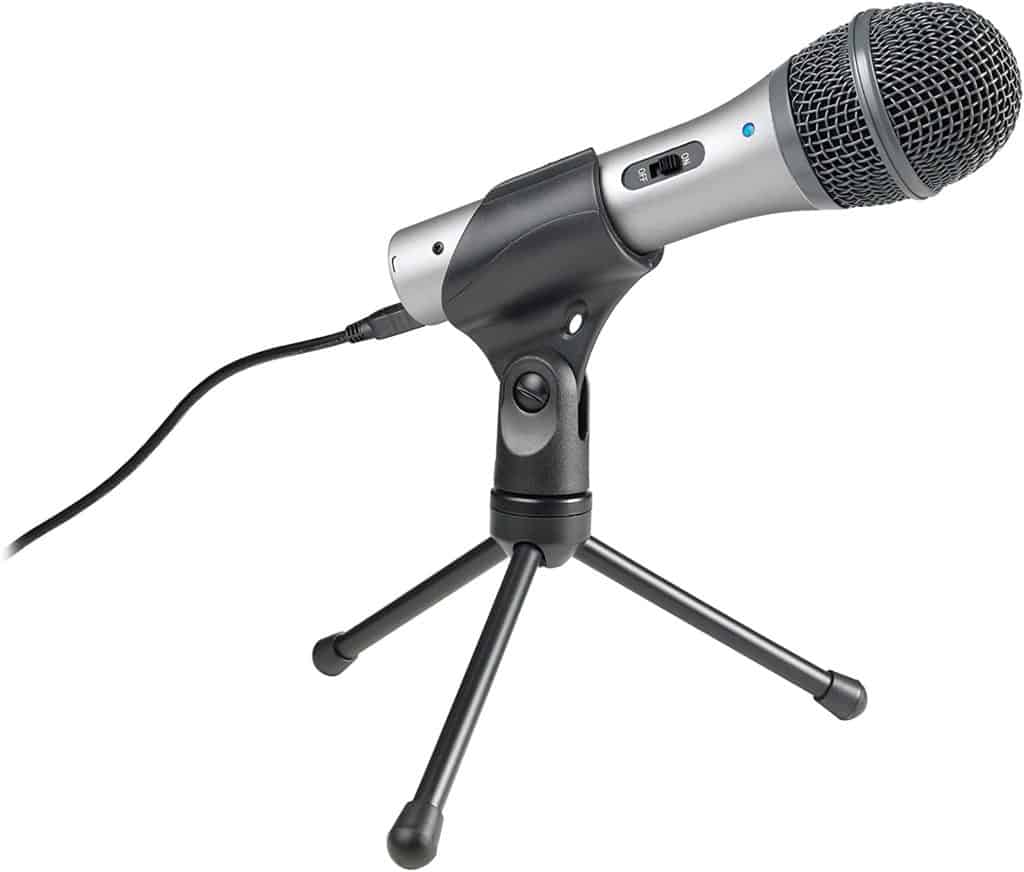
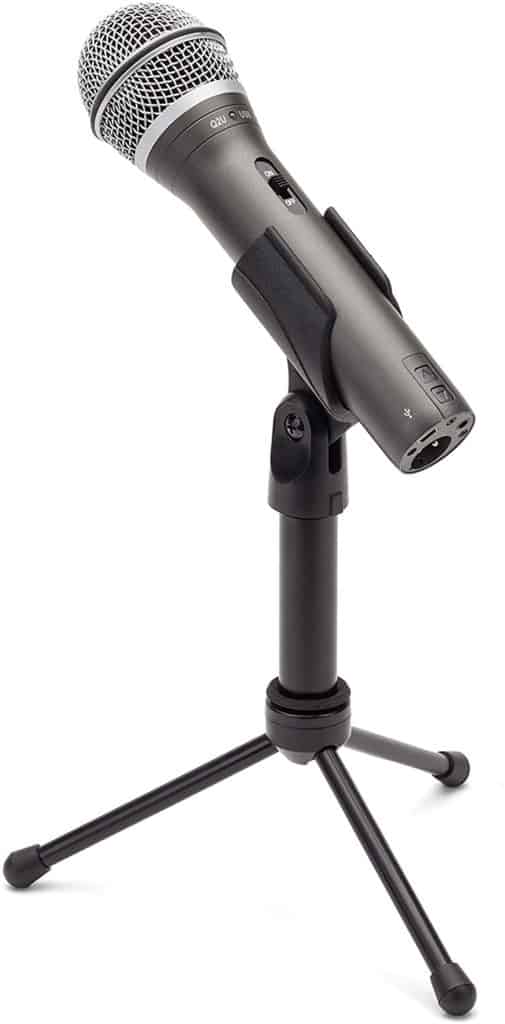
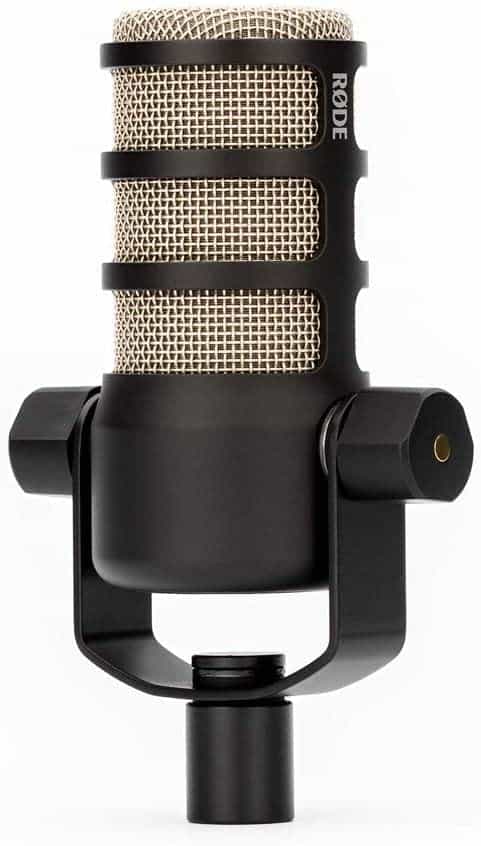
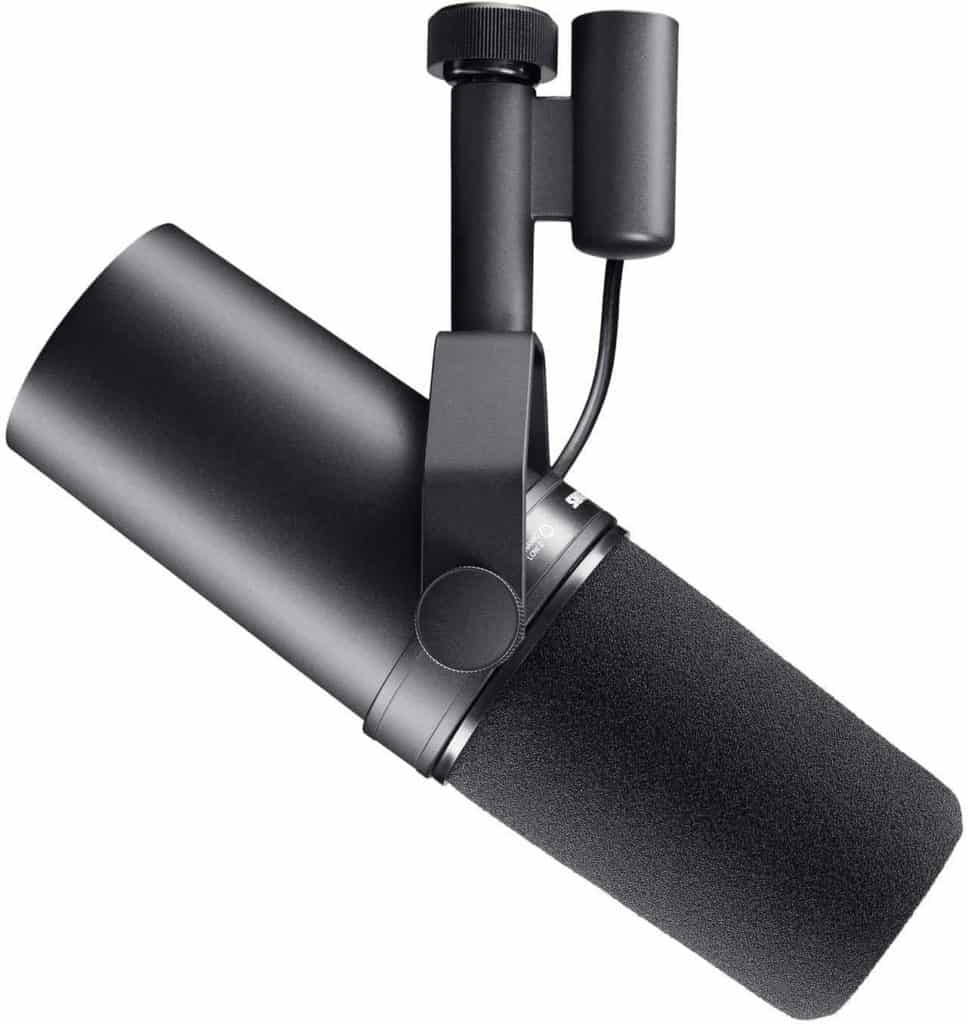

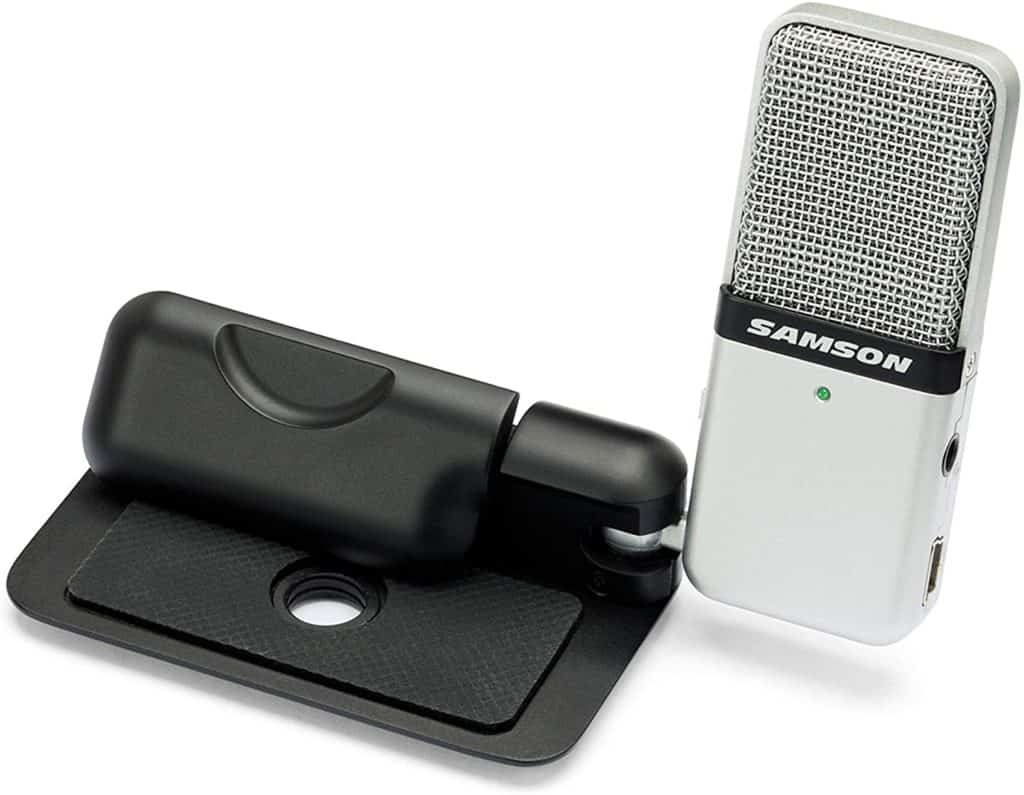
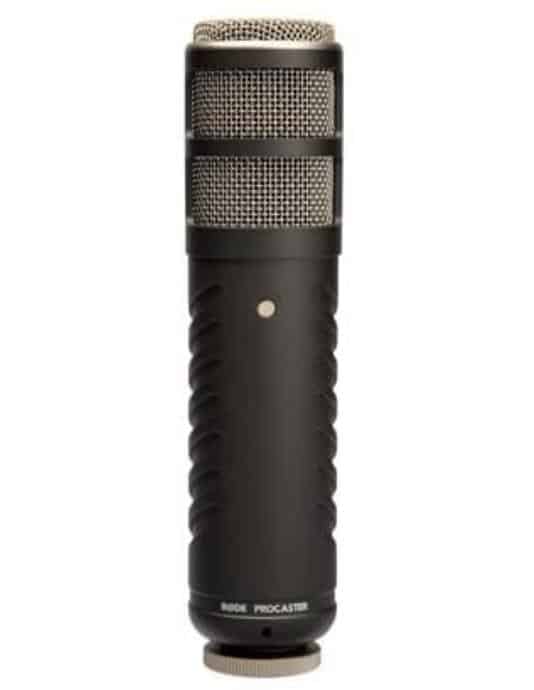
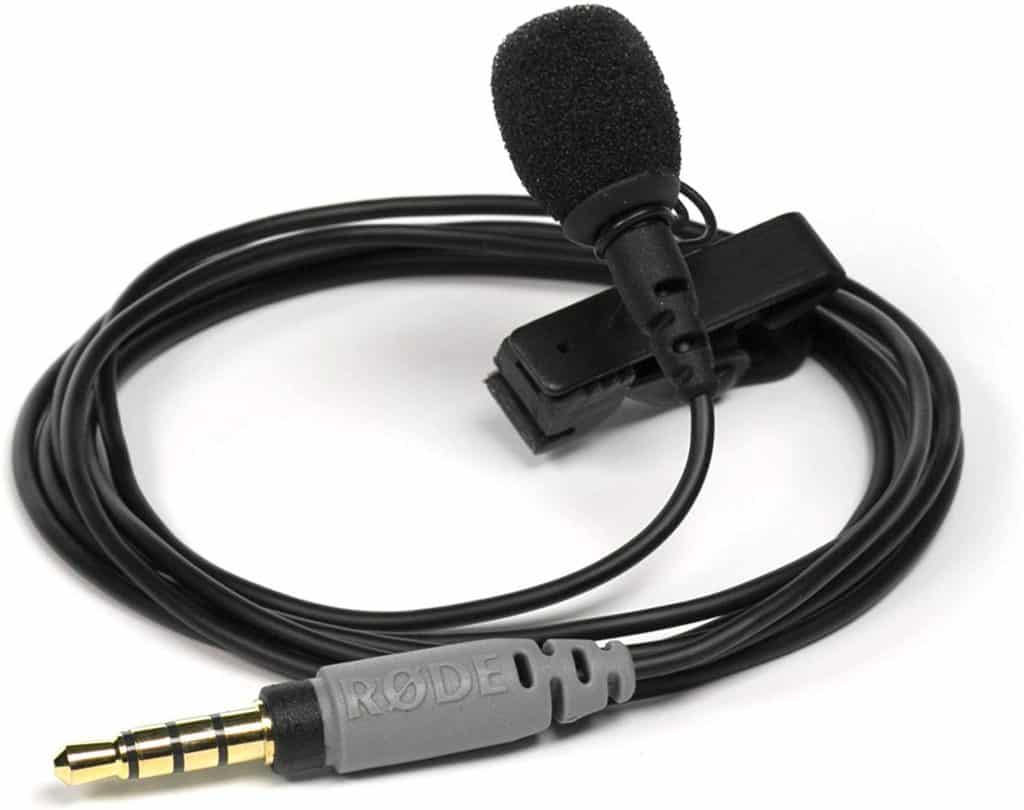
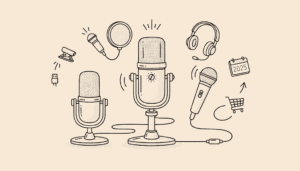
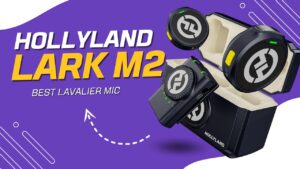
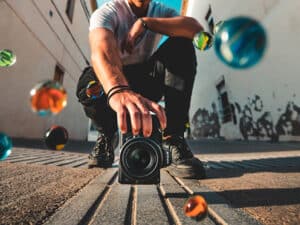
Comments are closed.